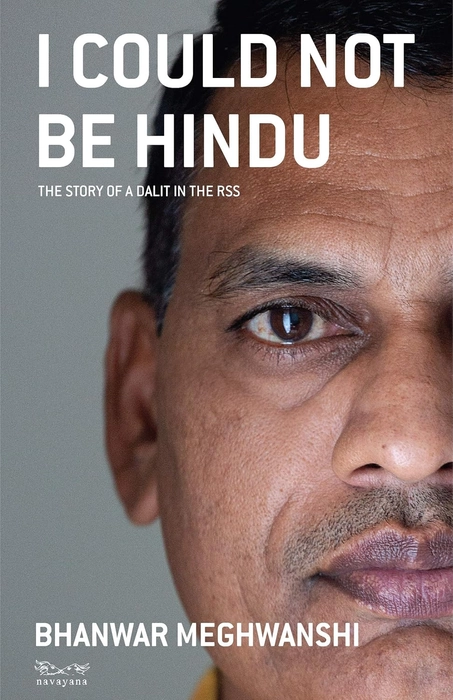Prakash Books - I Could Not Be Hindu: The Story of a Dalit in the RSS
Product details
Overview: I Could Not Be Hindu is a provocative memoir by Bhanwar Meghwanshi, chronicling his journey from a young boy in a Rajasthan village to a prominent member of the Rashtriya Swayamsevak Sangh (RSS) during the Ramjanmabhoomi movement. This candid narrative explores the complexities of caste, identity, and religious fervor, ultimately leading to Meghwanshi's critical reevaluation of Hindutva and his embrace of Ambedkarite philosophy.
Key Themes:
- Caste and Identity: The memoir delves deeply into the rigid caste hierarchies in Indian society, highlighting the struggles and systemic discrimination faced by Dalits. Meghwanshi's experience within the RSS as an untouchable provides a unique lens on how caste identity shapes personal and political realities.
- Radicalization and Ideology: Meghwanshi's initial passion for Hindutva, driven by a desire for belonging and empowerment, reflects how ideologies can seduce individuals, even those marginalized within their own communities. His journey illustrates the complex interplay between identity and ideology.
- Disillusionment and Transformation: The memoir documents Meghwanshi's eventual disillusionment with the RSS and Hindutva, showcasing his shift toward Ambedkarite thought. This transformation emphasizes the importance of critical self-reflection and the quest for authentic identity beyond imposed ideologies.
- Social Justice and Activism: Meghwanshi's narrative serves as a call to action for social justice, advocating for the rights of Dalits and challenging the structures of oppression perpetuated by caste and religion. His activism is rooted in personal experience and a desire for systemic change.
Writing Style: The memoir is written in an engaging and accessible style, allowing readers to connect with Meghwanshi's experiences and emotions. His narrative combines personal anecdotes with broader socio-political analysis, making it both a gripping story and a profound commentary on caste politics in India. The translation by Nivedita Menon effectively conveys the nuances of Meghwanshi's voice, ensuring the authenticity of his experiences resonates with readers.
Conclusion: I Could Not Be Hindu is a compelling and thought-provoking memoir that challenges readers to confront the realities of caste and the complexities of identity in contemporary India. Bhanwar Meghwanshi's journey from fervent Hindutva supporter to critical Ambedkarite offers valuable insights into the intersections of religion, caste, and politics. This book is essential reading for anyone interested in understanding the dynamics of caste in India and the ongoing struggle for social justice and equality.



